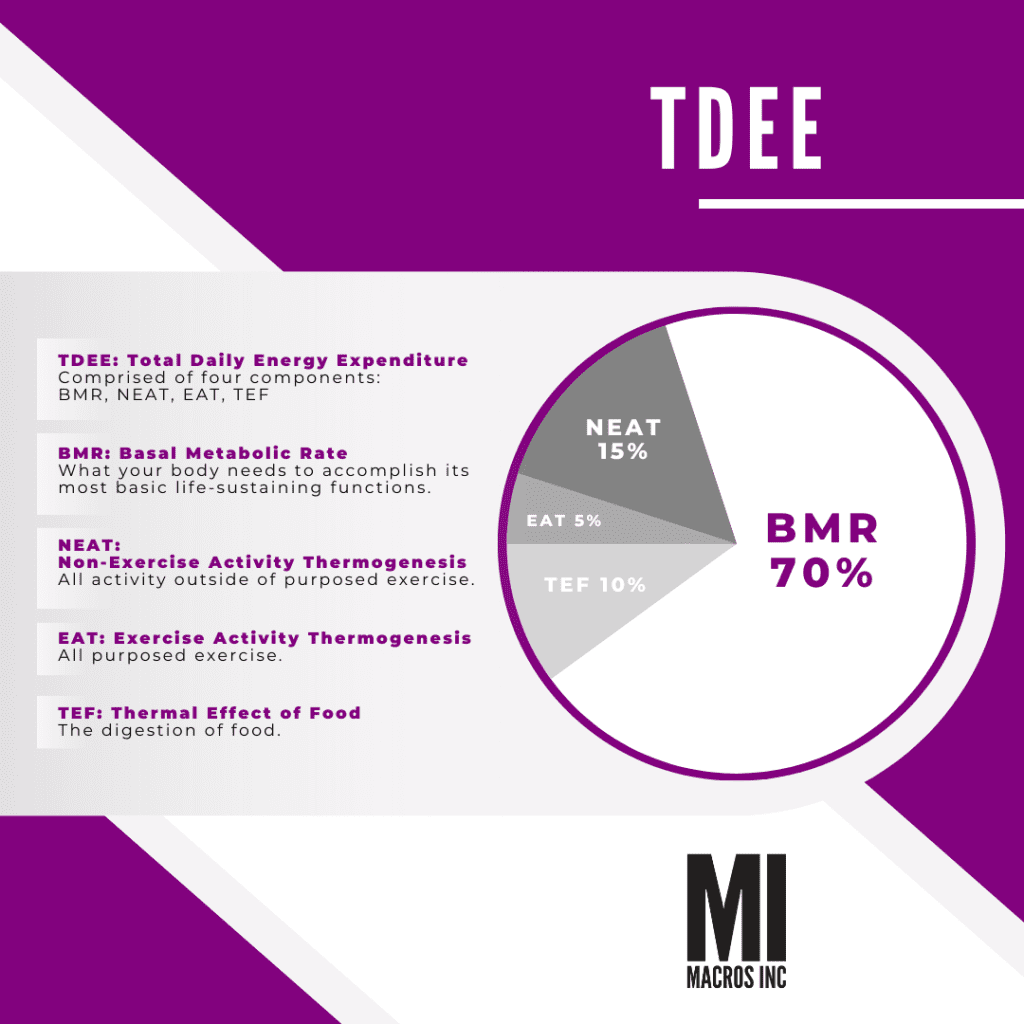Building lean muscle mass requires more than just hitting the gym. Proper nutrition plays a crucial role in supporting muscle growth and maximizing your fitness efforts. Among the various aspects of nutrition, understanding and calculating your macronutrients, or macros, is essential for achieving your muscle gain goals.
In this comprehensive guide, we will explore the importance of macros, walk you through the process of calculating them, and introduce a handy tool – our macro calculator – to simplify the process.
Understanding Macros
To calculate macros for muscle gain, it’s crucial to have a solid understanding of the three main macronutrients: protein, carbohydrates, and fats. Each macronutrient serves a specific purpose in supporting muscle growth and overall physical performance.
Macronutrients are the foundation of our diet, consisting of proteins, carbohydrates, and fats. Each macro serves a specific purpose in supporting muscle growth. Achieving the optimal balance of macros is vital for effective muscle gain. By tracking and adjusting your macros, you can optimize your nutrition to support muscle growth and recovery. Here’s a run-down of the main three macronutrients:
Protein:
- Calories per gram: 4
- Proteins are vital for muscle repair, growth, and maintenance. They provide amino acids, the building blocks of muscle tissue. Consuming an adequate amount of protein supports muscle protein synthesis and aids in recovery after intense workouts.
Carbohydrates:
- Calories per gram: 4
- Carbohydrates are the primary source of energy for the body. They are broken down into glucose, which fuels physical activity, including intense workouts. Consuming enough carbohydrates helps maintain energy levels, supports muscle glycogen replenishment, and enhances performance during exercise.
Fats:
- Calories per gram: 9
- Fats are a concentrated source of energy and play essential roles in hormone production, vitamin absorption, and overall health. While often associated with weight gain, consuming healthy fats in moderation is crucial for optimal body function and muscle growth.
It’s important to note that alcohol is also a source of calories (7 calories per gram) but provides no nutritional benefit for muscle gain and should be consumed in moderation or avoided altogether for optimal results.
Determining Your Daily Caloric Requirements
To calculate your macros for muscle gain, you need to first determine your total daily energy expenditure (TDEE). TDEE is the total number of calories your body needs to maintain its current weight. Several factors influence TDEE, including your basal metabolic rate (BMR), activity level, and exercise routine. By estimating your TDEE accurately, you can adjust your calorie intake based on your muscle gain goals, such as creating a caloric surplus to support muscle growth.

How Much Protein, Carbs and Fats Do I Need to Build Muscle?
That is a great question… and the answer is actually relatively straight forward.
You will need to be fairly close to 1.0 grams of protein per pound of body weight if you want to ensure you are maximizing your muscle growth.
You will also need to make sure that you are consuming at least 1.0 grams of carbohydrates per pound of body weight, but may need to be closer to 1.5-2.0 grams of carbohydrates per pound of body weight (we usually start muscle gain clients at 1.5 and then adjust from there).
Then you can round out the rest of the calories from either fats or carbohydrates, depending on your preferences. Just make sure you are getting at least 10-15% of calories from fat if you are adopting a lower-fat diet.
How Many Calories Do I Need to Gain Muscle?
This is where 98% of people who struggle to build muscle fail.
You HAVE to eat enough food to gain muscle. And it is more than you think… and it takes WAY longer than you think.
In fact, you have to consistently eat in a surplus for MONTHS to make any meaningful headway.
For example, let’s say that you want to maximize your muscle growth and you want to gain 10 pounds of lean muscle. Since most people can add 0.25-0.5 pounds of lean muscle a week, that means you have to eat in a surplus, essentially every single day for 5-7 months.
If you miss a few days every week that means you have to extend that to like 10-14 months.
This is where 95% of people fail. They just cannot eat that much food consistently.
Now that we agree that you have to eat in a surplus for an extended period of time and failing to do so stalls progress, how much of a surplus should you be in?
Turns out, there is a decent amount of research on this topic and we can distill all that down to a pretty simple idea. Your body needs a 300-500 calorie per day surplus to maximize muscle growth while minimizing body fat gain.
How Do I Calculate My Macros for Muscle Gain?
Now that you know that you need to be at a 300-500 kcals per day surplus to maximize muscle growth, how do you know what your personal calorie needs are and what how do you structure your macros for muscle gain?
Let’s start with the first question: what are my personal calorie needs?
There are two ways to answer this question.
Method One:
The first is to utilize a macro calculator and estimate a starting point for your calorie needs. We have a free calculator that has been utilized by over 1 Million people. Put in your information as accurately as you can and it will give you your personal calorie needs. You can even double check those with a Macros Inc coach for free in our community. Follow those calories for 4-6 weeks and your body weight should be increasing ~0.25-0.5 pounds per week over that time frame.

Method Two:
The second way is to determine what your current maintenance calories are by tracking your current food intake and finding what calorie intake you are completely weight stable at over 4-6 weeks and then adding 300-500 calories a day on top of that. This will take a little longer than option one, but may be slightly more accurate as there is much less guess and check involved.
Summary
Understanding and calculating your macros is essential for maximizing muscle gain. By determining your protein, carbohydrate, and fat intake, you can optimize your nutrition to support muscle growth and recovery. Our comprehensive guide has provided you with the knowledge and steps to calculate your macros effectively.
To simplify the process, we recommend using our macro calculator tool, which takes into account your individual factors to provide personalized macronutrient targets. Start your muscle-building journey today by utilizing the power of macros and our macro calculator. Your dream physique is within


